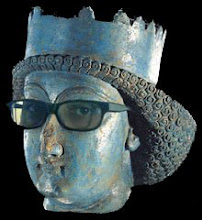
Did you know that it was the evil Gargamel who created Smurfette? His plan was to send this beautiful (and easily manipulated) creature into the midst of the hated smurfs and follow her to find their secret village. It worked too. She led evil straight into the smurf village under the guise of friendship and acceptance.
Sounds a little too familiar.
Isn't this exactly the claim of those who would oppose the ordination of women? Don't they think that it would be introducing an evil element into a sacred office? I am not saying they would think women are "evil" per se, but the fear is that the wrong gender can contaminate the holy role of the priest/pastor.
As it turns out, Smurfette ends up saving the entire village from Gargamel. And her unique perspective on the "evil one" adds a whole new level of protection for the smurfs.
The Church desperately needs this new perspective right now. For too long we have limited ourselves. For too long we have only been half complete. Now is the time to break away from this trammel. I am so glad to be a member of a denomination (PCUSA) that celebrates fullness in our ordained ministers and elders and deacons. I congratulate the Episcopal and Anglican churches for their recent (within the last 20 years all the way up to a few weeks ago) steps forward. There are many other Christian churches that celebrate the fact that, "The same Spirit... calls women and men to all ministries of the Church" (Book of Confessions 10.4) like the UCC, UMC, etc. I pray for my brothers and sisters of the SBC, RCC, EO (Russian, Greek, etc.) that they may one day experience the fullness of what their clergy could be.
Let us not limit what God can do through those who are not male. Better yet, let's not define people by what they aren't, but let's know them by what they offer.
I'd like to end with this poem by Frances Croake Frank:
Did the woman say,
When she held him for the first time in the dark
of a stable,
After the pain and the bleeding and the crying,
"This is my body, this is my blood"?
Did the woman say,
When she held him for the last time in the dark rain
on a hilltop,
After the pain and the bleeding and the dying,
"This is my body, this is my blood"?
Well, that she said it to him then,
For dry old men,
brocaded robes belying barrenness,
Ordain that she not say it for him now.














